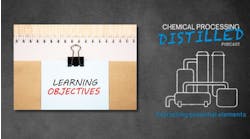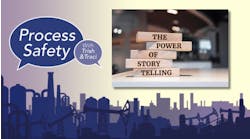The quest for diagnostics and vaccines for Covid-19 has spurred some ancillary and less widely appreciated impacts. For instance, as this issue’s article “Disposable Equipment Makes Lasting Gains” notes, single-use equipment is playing an important role in such developments because of its benefits, such as faster set-up and lower capital cost. While use of such disposable equipment has shown continuing growth for some time, the current efforts promise to foster even more uptake.
[pullquote]
Another result of the pandemic, I certainly expect, is a greater awareness and interest by chemical engineering students and graduates in the opportunities to use their technical training in careers involving bioengineering. While work in the pharmaceutical industry may come to mind first at the moment, such careers span a broad range of fields.
So, the timing of a new publication by the Institution of Chemical Engineers (IChemE), Rugby, U.K., is particularly propitious. “Chemical Engineering Careers in the Bioeconomy,” released in late April, contains career profiles of more than 20 chemical engineers in diverse roles and at various career stages in a variety of industries.
James Winterburn, chair of the IChemE Biochemical Engineering Special Interest Group, provides an apt foreward:
“... Each one of these career profiles demonstrates the impact made by chemical engineers across the breadth of the bioeconomy, including water, energy, food, manufacturing, and health and wellbeing.
“As chemical engineers we must continue to support, be encouraged and evolve our knowledge to encompass new advances in engineering biology, synthetic biology and industrial biotechnology. I hope that this booklet provides inspiration to students who decide to study chemical engineering; to the professionals who work in engineering; to the companies operating in the biosector interested in the skills a chemical engineer can bring to their operation; and to the public, to help develop their understanding of the role that chemical engineering plays in society.”
Ten profiles cover people working in the area of health and wellbeing; five focus on engineers working in the energy field, and four on those in bioprocess design and manufacturing. One profile deals with someone in the water field and, another, in food and nutrition. Most work in the U.K., but some are based in Ireland, Canada, New Zealand and China. Four are women. Importantly, the profiles span people at different career stages, from the first jobs to executive positions.
Each profile includes answers to about a dozen questions. These address basic points such as the person’s educational background and current job responsibilities but also delve into what it takes to do the job and its greatest challenges, what the person considers the similarities and differences from other chemistry- or process-related industries, what sets the biosector apart as a good place to work, and what tips the person can offer for someone considering a career in the sector.
Winterburn ends his foreward:
“As demonstrated by the career profiles presented here, a career in chemical engineering is a journey, and there are many different doors to open and many different roads to exciting new opportunities.”
I couldn’t agree more.



